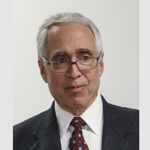‘Show Us the Work’
Organized by the nonpartisan Partnership for Public Service in collaboration with the Office of Personnel Management, academic leaders plan to celebrate federal service whenever they can-from orientation day to commencement ceremonies.
The effort doesn't come a moment too soon. Spring also brought news that the federal government is still running dead last as a destination of choice among America's college graduates. In a poll of liberal arts students graduating in 2002, by the Brookings Institution's Center for Public Service (which I direct), only 13 percent of those surveyed said they had seriously considered working for the federal government. Business was the first employment choice at 31 percent, state and local government was second at 30 percent, and the nonprofit sector placed third at 18 percent.
Graduates aren't afraid of hard work. In fact, more than 80 percent of the students said the most important criteria in choosing a job was interesting work. The opportunity to help people came in second at 70 percent, followed by the chance to learn new skills at 66 percent. Job benefits, such as health insurance and vacation time, and the chance to do challenging work tied for fourth at 62 percent each.
Contrary to conventional wisdom, graduates aren't worried about low salaries or college debts. Higher pay and loan forgiveness might make federal jobs more attractive, but only 49 percent of the students surveyed said the opportunity to pay off college loans was a "very important" consideration about where to work, and just 32 percent felt that way about pay.
Regardless of where they went to school, what college graduates care about most in a job is the work. Asked what they expect from a job, 78 percent of the students said they want most to be treated as professionals. Another 68 percent said they prize "meaningful" work, and 67 percent wanted opportunities to be trained and acquire new skills. Sixty percent value "challenging" work, and half want to be rewarded for high performance.
This year's graduates are saying exactly what their predecessors have said for the better part of 20 years: "Show us the work." Unfortunately, federal work has not been showing well lately. Hardly a week goes by without some new government gaffe. In February, Americans found out that the Immigration and Naturalization Service had mailed student visa notices on behalf of two of the Sept. 11 hijackers five months after their attacks. In May, citizens heard that the FBI had failed to investigate a warning from its Phoenix office before Sept. 11 about suspicious activity at the nation's loosely regulated private flight schools. In June, they found out that the FBI had failed to follow-through on a similar warning from Minneapolis.
Perhaps that is why President Bush has not mentioned federal employees since Oct. 15, when he honored senior executives for their role in restoring trust in government. Federal employees were missing from his State of the Union address in January, when he thanked just about everyone else in America for rebuilding homeland security. They were omitted, too, from his calendar when Public Employee Recognition Week rolled around in May. They were in his budget proposal for a pay increase in 2003, but slated to get 1.4 percent less than military personnel.
But George W. Bush is not the reason young Americans aren't interested in federal careers. Much as the president could spur recruitment, words alone cannot turn dismal careers into bright opportunities, underfunded agencies into paragons of performance, or dense hierarchies into open space. The way to make federal government a destination of choice is to make its jobs more effective and more interesting. According to federal employees, the work needs improvement. Federal jobs appear to be better at the Defense Department at least, where a charismatic leader, budget increases and a precise mission have sharpened the senses and cleared away some of the barriers to effectiveness.
Non-Defense civilian employees, on the other hand, are less likely today than they were a year ago to say they are given a chance to do the things they do best. They also are less likely to be satisfied with their jobs or their opportunities to accomplish something worthwhile. Federal employees are less likely to be able to describe their agencies' missions or feel that they personally contribute to those missions. Although they are still proud to say they work for the federal government, employees are less likely today than they were a year ago to trust their organizations "to do the right thing."
Like college seniors, employees also are saying, "Show us the work." They want to be engaged in important missions, have the resources to succeed, and get rewards for jobs well done. Until the jobs get better, America's most talented college graduates are right to rate the federal government the career of last resort. Even if they join the government to get the loan forgiveness and a few years of experience, the evidence suggests they will not stay for long.
Paul C. Light is vice president and director of governmental studies at the Brookings Institution.
NEXT STORY: Democracy On The Cheap







